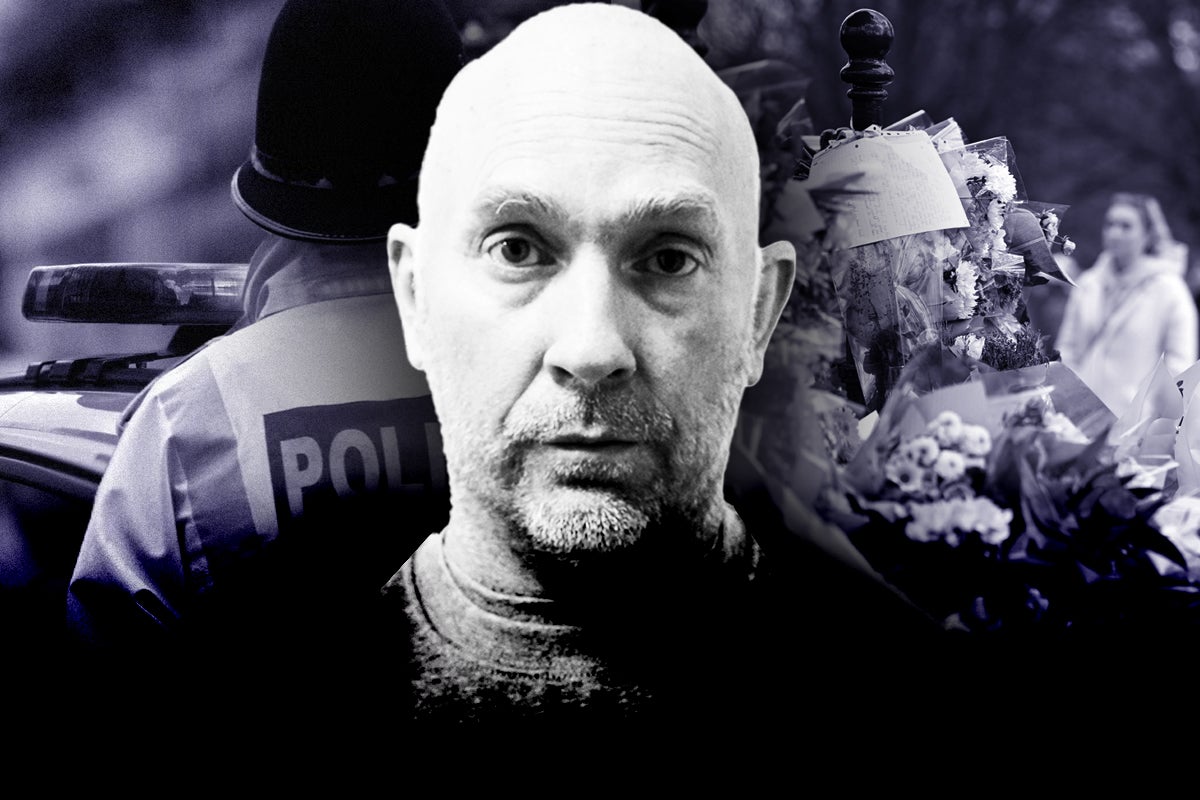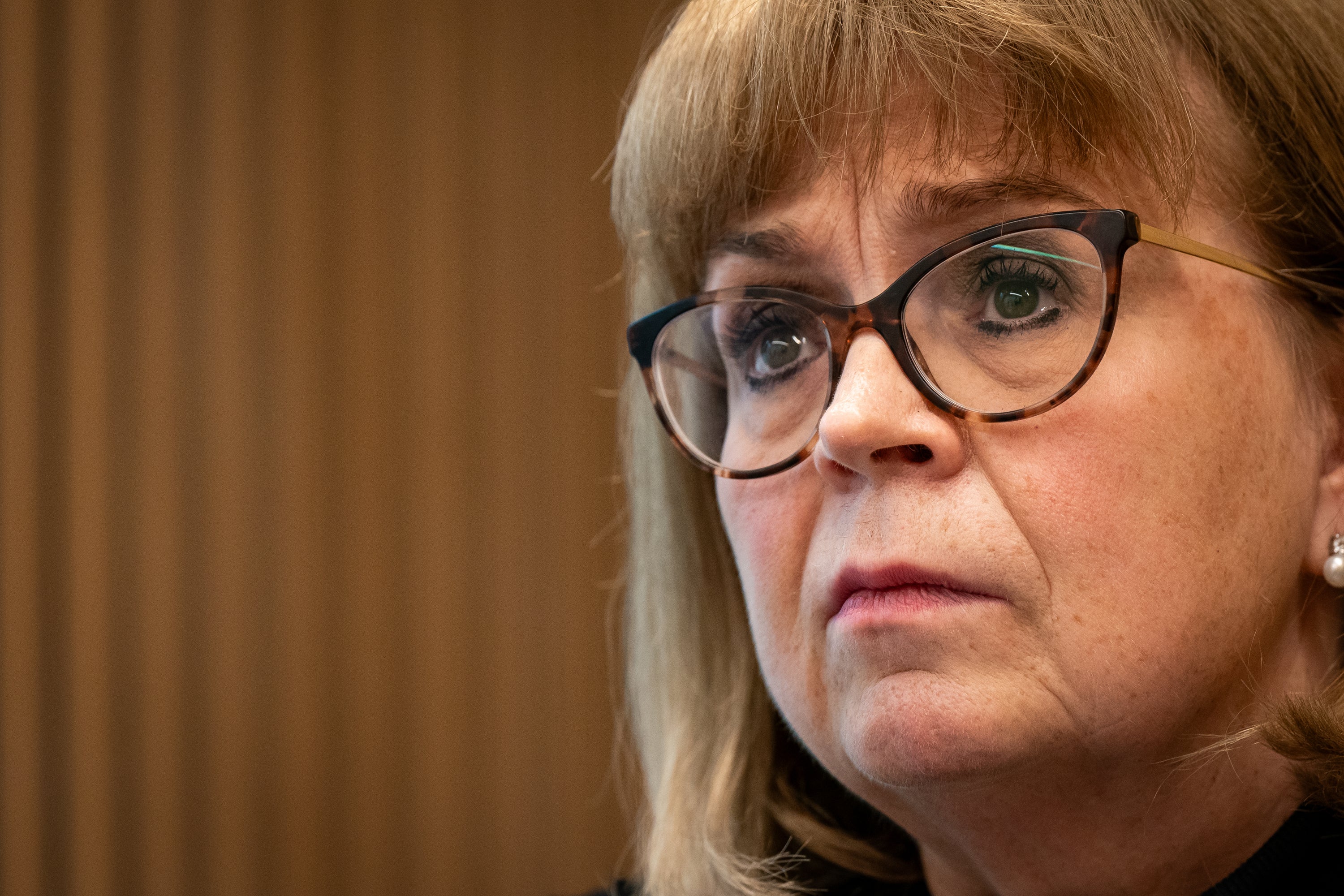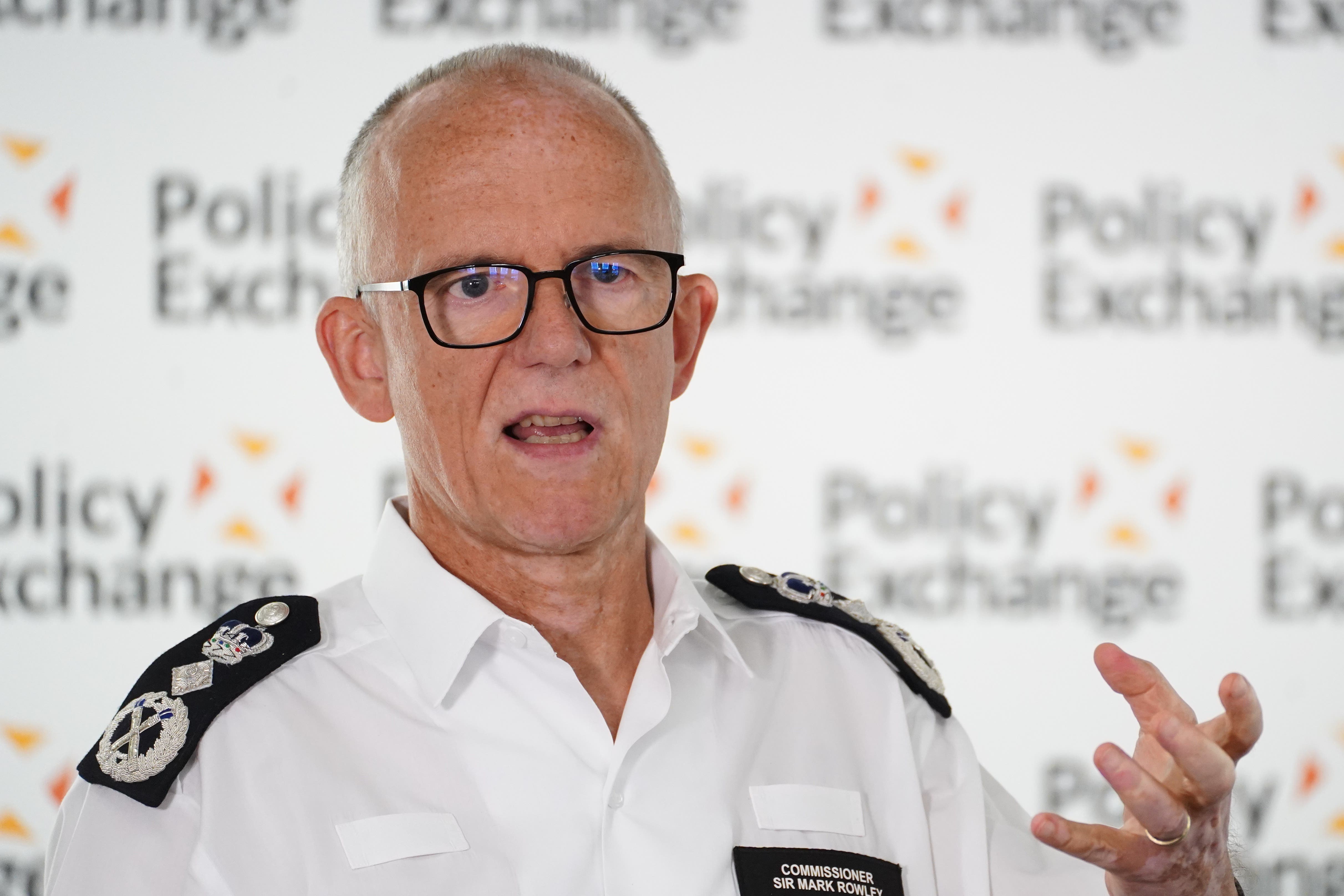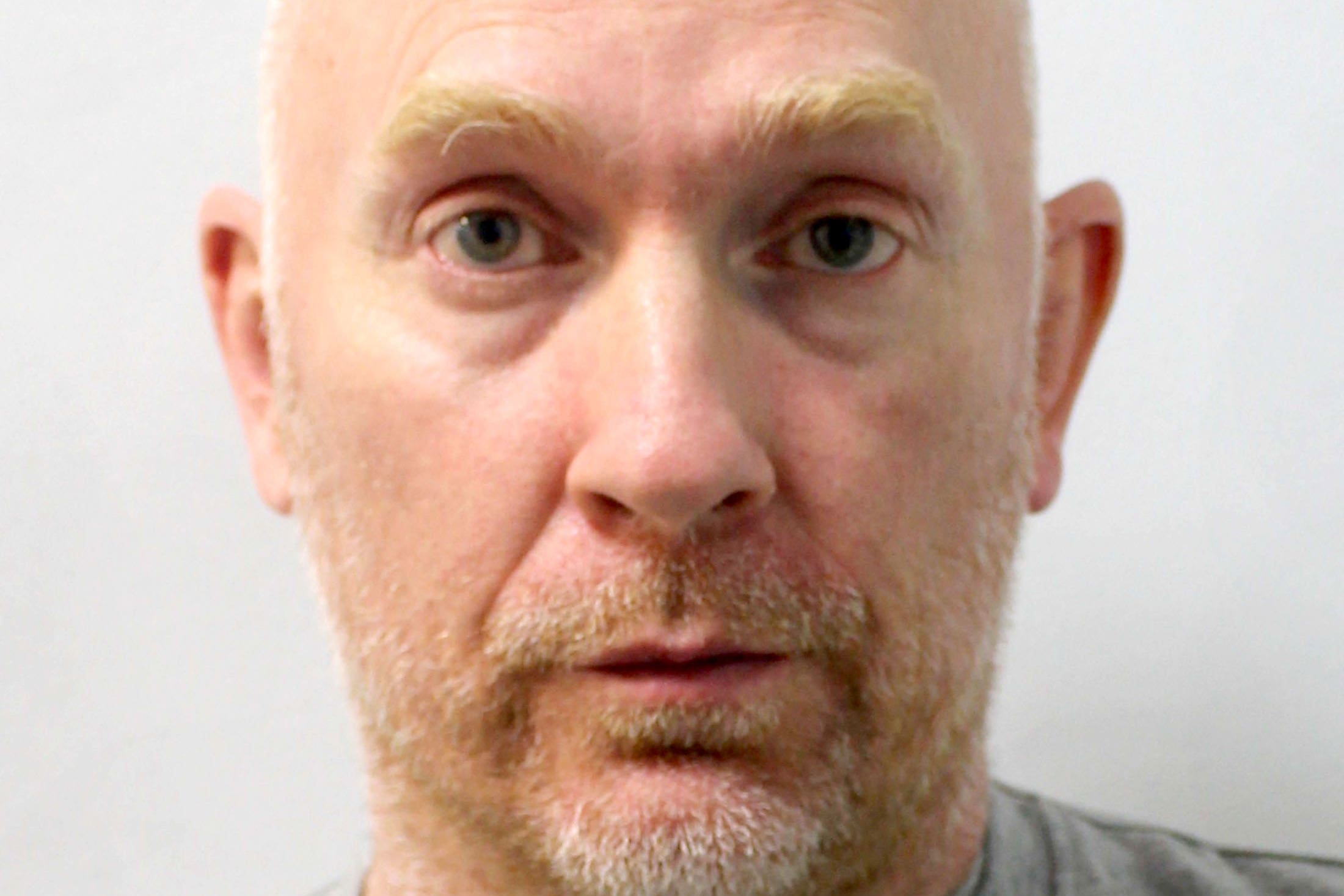How was Sarah Everard murderer Wayne Couzens allowed to join the police?
Sarah Everard’s devastated family believe she died because Couzens was a serving officer, adding: ‘She would never have got into a stranger’s car.’
Wayne Couzens’ predatory sexual behaviour started 20 years before he raped and murdered Sarah Everard and he should never have been allowed to join the police, a damning inquiry has found.
Police chiefs admitted Ms Everard’s death in 2021 at the hands of a serving Metropolitan Police officer was “one the darkest days in police history” as a shocking report uncovered the scale of failures in recruiting the monster and eight missed chances to stop him in his tracks.
A two-year independent inquiry has uncovered allegations that Couzens committed a very serious sexual assault against a child who was barely in her teens before his policing career even started.

Lady Elish Angiolini’s inquiry uncovered evidence of multiple other sexual attacks by Couzens and she fears there may be even more victims.
In a damning series of revelations, it emerged that:
- Police missed eight chances to catch Couzens after people reported incidents of indecent exposure between 2008 and 2021
- Multiple victims have come forward since his arrest with allegations including rape, an attempted knifepoint kidnap and a serious sexual assault of a child
- The inquiry called for a radical overhaul of police vetting and recruitment after finding repeated failures to spot red flags – with three separate police forces permitting him to serve
- Met Chief Mark Rowley described the report as an “urgent call to action” as he apologised to Ms Everard’s family again

After the report was published on Thursday, Lady Elish told The Independent of her shock at the scale of the failures, warning there could be another Couzens hidden in plain sight.
“I thought there would be initial failures, but to see them peppered throughout the period was quite shocking,” she said.
She called for the government and police chiefs to urgently consider 16 recommendations she has made for reform, adding it is “absolutely critical to the future of policing”.
The inquiry found that following his arrest for the abduction and murder of Ms Everard, police received reports Couzens had attempted to kidnap someone at knifepoint in north London in 1995. The complainant came forward after recognising him in the media.
Couzens was also accused of raping a woman at a singles night in east London between 2006 and 2007 and a further alleged rape under a bridge in the capital in 2019. Both victims came forward after Couzens was arrested, but no further action was taken due to “evidential difficulties”.
Another complainant came forward to say that Couzens had assaulted a man dressed in drag at a bar in Kent in the summer of 2019 and invited him to perform a sex act outside.
The long-awaited 350-page report also detailed his “diverse and deviant” sexual interests, with evidence he showed friends and colleagues violent pornography and on at least two occasions shared unsolicited pictures of his genitals with young women.
Lady Elish also found Couzens, who is alleged to have possessed indecent images of children, paid female online retailers to masturbate into clothes and send them to him.
The inquiry has called for a radical overhaul of police vetting and recruitment after finding repeated failures to spot red flags, allowing three separate police forces to permit him to serve.
It has also called for a fundamental change to how police respond to indecent exposure after repeated incidents linked to Couzens were not properly investigated.
The inquiry found eight occasions in which incidents of alleged indecent exposure were reported to police between 2008 and 2021 – prior to Ms Everard’s murder – but not one led to his arrest and prosecution. A further incident, dating to 2004, was reported after her death.
Lady Elish said: “Wayne Couzens should never have been a police officer. And, without a significant overhaul, there is nothing to stop another Wayne Couzens operating in plain sight.”

Couzens was a serving Metropolitan Police officer when he kidnapped, raped and murdered Ms Everard, 33, three years ago as she was walking home in Clapham, south London.
The horrifying crime shocked the nation and led to a widespread outpouring of grief, thrusting issues of police corruption and violence against women and girls into the spotlight.
Lady Elish added: “I would urge all those in authority in every police force to read this and take immediate action. Sarah’s parents and loved ones live in the perpetual grief and pain of having lost Sarah in this way.
“Her death, and the public discourse it caused, should galvanise those responsible for policing to make sure something like this can never happen again.”
Responding to the report in a rare statement, Ms Everard’s devastated family said it was “obvious” that Couzens should never have been a police officer.
“Whilst holding a position of trust, in reality he was a serial sex offender. Warning signs were overlooked throughout his career and opportunities to confront him were missed,” the family said.
“We believe that Sarah died because he was a police officer – she would never have got into a stranger’s car.”
The statement from Sue, Jeremy, Katie and James Everard paid tribute to Sarah, a marketing executive, ahead of the third anniversary of her death on Sunday.
“We no longer wait for her call; we no longer expect to see her. We know she won’t be there at family gatherings. But the desperate longing to have her with us pervades every part of our lives,” they said.

The independent inquiry, commissioned by former home secretary Priti Patel, sets out 16 key recommendations to government and policing leaders to prevent other officers from abusing their position of trust in “such a heinous way” again.
It was found that Couzens carefully managed the impression he gave of himself to people, “manipulated information” on application forms and only shared his callous views of women with a very small group of “like-minded” people.
Couzens successfully applied to become a special constable at Kent Police in 2006, despite having failed vetting two years earlier when he applied to be a regular officer.
The report found the force’s recruitment policies were applied inconsistently after the vetting was carried out by two different teams. He worked as a special with Kent Police until he resigned in 2010.
He then moved to the Civil Nuclear Constabulary in 2011 and went on to be approved as a firearms officer, but the report found that he should not have been allowed to join because of his troubled finances.
At the time of his recruitment, Thames Valley Police, to whom the CNC outsourced vetting, recommended he should not pass because he had a financial legal agreement to avoid bankruptcy – known as an Individual Voluntary Arrangement – but this recommendation was not followed.
His initial vetting to join the Met in 2018 was also flawed after the outcome of a Police National Database check was recorded as “no trace” despite him being reported missing in 2013 and his car being linked to an incident of indecent exposure in 2015.
This was missed yet again when he applied to serve as an authorised firearms officer with the force the following year.
Couzens – who will never be released from prison – went on to use his knowledge and police powers to falsely arrest Ms Everard for breaching lockdown restrictions, before raping and dumping her strangled body in a woodland near Ashford.
Shockingly – even after he was exposed as a killer – the Met told the inquiry in 2022 they would still have recruited him if they were provided the same information again.
“I found this astonishing,” Lady Elish said. “I make a number of recommendations to improve recruitment and vetting – covering everything from in-person interviews, and home visits for new recruits, to improvements for information sharing around transfers.”

Lady Elish added that allegations of indecent exposure were treated as “low level” by investigating officers.
In 2015 someone reported to Kent Police a man driving Couzens’ car while indecently exposing himself. A further report was made about a “masturbatory incident” towards a cyclist down a narrow country lane in 2020.
Just days before he abducted Ms Everard, he was reported for exposing himself at a drive-through in London. Then-Met police constable Samantha Lee was sacked and barred from being a police officer after it was found she had not properly investigated the incidents.
The report also noted the police working environment “did nothing to discourage his misogynistic view of women”, which allowed his deviant behaviour outside work to flourish.
Anna Birley, co-founder of Reclaim These Streets, which staged a high-profile vigil in the wake of Ms Everard’s murder, said it will be difficult for women to trust police until the inquiry’s recommendations are embraced by the government.
She told The Independent: “Misogyny still thrives within policing culture, warning signs are missed and dangerous men operate in positions of authority in plain sight.
“The report is a grim read, and Lady Elish has done a thoughtful and thorough job but until the home secretary makes the inquiry and its findings statutory I don’t trust that the necessary reforms will be implemented.
“Until then, it will be difficult for women to trust that there are not predators among the ranks of the people tasked with keeping them safe.”
Deputy chief Maggie Blyth, the National Police Chiefs’ Council lead on violence against women and girls, described Ms Everard’s murder as one of the “darkest days in police history”.
“What followed was a watershed moment,” she added.
While Sir Mark said the force was working “step by step” to drive up standards and restore trust in policing, he admitted the report lays bare the “very low base that we are starting from”.
Kent Police has apologised for failing to properly investigate when Couzens was reported for indecent exposure in 2015, adding it fully accepts the report’s recommendations.
Labour’s Yvette Cooper said the inquiry had exposed “a catalogue of appalling failures”. The shadow home secretary added: “Wayne Couzens should never have been a police officer, he should have been stopped and he could have been stopped from being a police officer.
“It is truly appalling his history of alleged sexual offending stretches back so many years and yet opportunities to investigate were repeatedly missed, and most disturbing of all, Lady Angiolini says there is nothing to stop another Wayne Couzens operating in plain sight.”
Home secretary James Cleverly said Ms Everard’s murder was an act of “pure evil” but insisted it is not a reflection of the majority of dedicated police officers.
He said the government will “thoroughly” consider the recommendations, adding: “In the three years since, a root and stem clean-up of the policing workforce has been underway and we have made huge strides – as well as making tackling violence against women and girls a national policing priority to be treated on a par with terrorism.
“But we will continue to do everything in our power to protect women and girls. I am grateful to Lady Elish for her meticulous investigation. Her insights will be invaluable as we move forward in supporting our police to build forces of the highest standards of integrity and regain the trust of the British public.”

